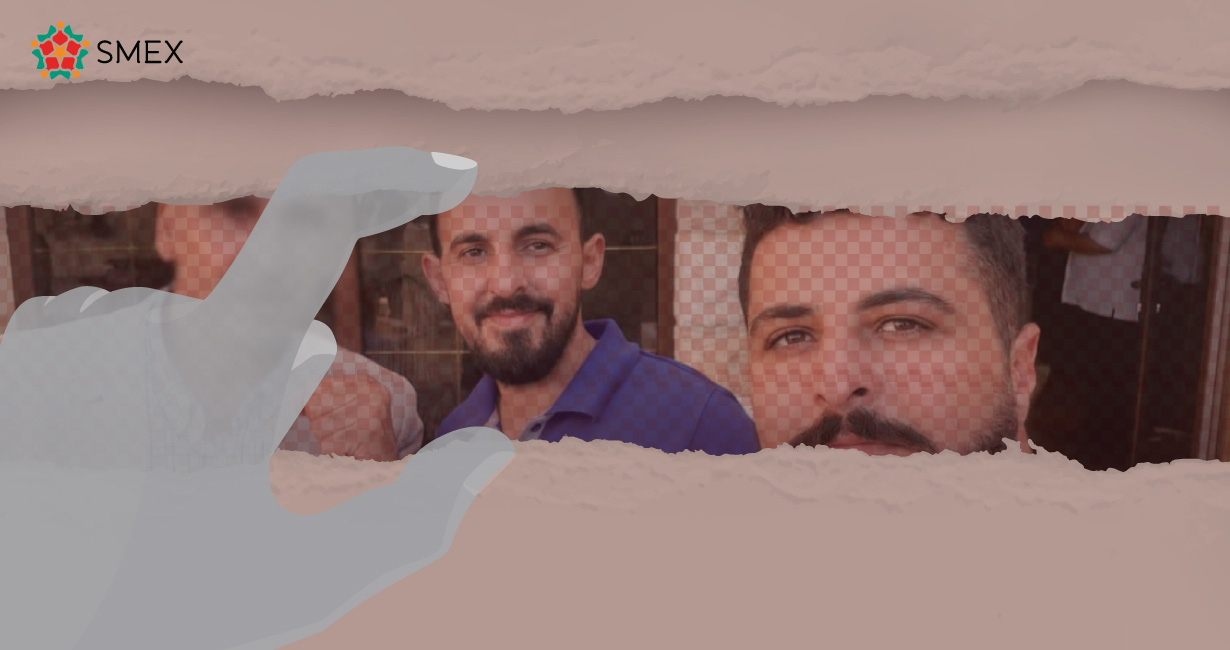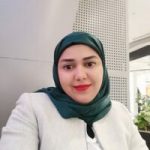“The investigator tried to take the investigation in a different direction. Our phones were taken away and their data was wiped to prove we ran “NAD NAD” and other fake pages. However, our phone records clearly showed we had nothing to do with the reported issue.”
Rashad Zeidan and Salam Saab revealed to SMEX that the Cybercrime and Intellectual Property Bureau summoned them via a phone call and interrogated them for ten hours last Friday. The complaints turned out to be invalid, and “the investigator was unable to prove any slander and libel or defamation against the Druze community,” they said.
It was only during the investigation that the two activists learned about the charges pressed against them by the Druze council. They were summoned for allegedly running a Facebook page called (NAD NAD) and publishing “scandals” happening in Southern Mount Lebanon, a region in Lebanon mostly inhabited by the Druze community.
This page was created around the same time that Zeidan and Saab were active on social media during the October 17 protests. Activist Nadine Barakat, who lives in the United States, posted daily about corruption cases involving politicians, bankers, and deputies. However, Barakat was accused of running the (NAD NAD) account which exposed corruption and theft of donations at Chouf’s “Ain W Zain” hospital, before the account was shut down.
Activists in the Chouf and Mount Lebanon regions have faced an ongoing barrage of notices since the October 17 movement and the recent parliamentary elections. This month alone, four activists were summoned for their social media activity, and before them, it was sheikhs and clerics who were called in for questioning. They all ended up signing pledges to refrain from criticizing specific individuals and institutions.
Ten hours of interrogation
The investigation was delayed for ten hours as attorney Rania Ghaith, representing Zeidan and Saab, rejected some texts mentioned in the investigation. The activists were pressured into signing a pledge that would restrict their ability to criticize the complainant party.
Ghaith contested this request, particularly since none of the charges against them were proven. Despite their reservations, Zeidan and Saab eventually signed the pledge, citing the Attorney General’s insistence on its routine nature. They clarified to SMEX that while bound by the pledge, they would still exercise their right to counter slander and protect their personal interests.
“The summoning is illegal; nevertheless, the two young men were aware of their rights during the investigation, as they attended the hearing with a lawyer and requested to see the investigation report, which prompted a lengthy argument,” Ghaith told SMEX. The officer had not shared with them any details regarding the complainant during the summons phone call.
After ten long hours of questioning, the investigator called the Public Prosecutor of the Court of Cassation and tried to twist the facts, instead of sending him the detailed investigation report via email.
“Is a phone call between the investigator and the prosecutor enough to properly transfer the information? How does the Public Prosecutor decide to issue a decision coercing the two young men into signing the pledge and pursue the case in court, without looking into the evidence of the investigation and without the investigator signing the report with them?” attorney Ghaith probed.
Zeidan and Saab explained that the summons took place on Friday on purpose. They said it is an obvious attempt to pressure them into signing illegal pledges, or remain under investigation and arrest until the following week.
The Druze Council fires accusations: “A frenzied campaign against the community”
Activists suspect that the dominant political entities in Mount Lebanon, including the Progressive Socialist Party, are behind orchestrating the summons, especially amid growing opposition and the notable electoral wins during the 2022 elections.
Zeidan does deny his past affiliation with the Progressive Socialist Party, explaining that he believed he could make a change from within the party, “but to no avail,” stating that he will not give up on his activism.
Activist Nisreen Khattar was also summoned for an investigation scheduled for May 25. However, she refused to attend the hearing on the grounds that she had not committed any crime, and also due to her social status as an activist in social affairs and a teacher, as she said.
Khattar met Sheikh Al-Akl, or the supreme Sheikh of the Druze Community, Sami Abi Al-Muna and discussed the summoning. He firmly opposed having a woman present before the Bureau, asserting that efforts are underway to remove her name from the case.
Khattar told SMEX that during the meeting, she tried to amplify the voice of the opposition and the defendants. She emphasized that Abi Al-Muna stressed that the Druze Sheikhdom does not meddle in the selection of individuals summoned by the Cybercrime Bureau, as the latter has the authority to summon whomever it deems necessary.
On May 12, the media office of the Akl Sheikhdom and the Druze Council issued a statement regarding the summons and the lawsuit. The statement explained that “the lawsuit was filed due to the persistence of (NAD NAD) and other suspicious pages that use derogatory language, spread misinformation, and share images that can potentially incite conflict.”
The media office clarified that the Cybercrime Bureau summoned certain individuals as a result of ongoing investigations that have raised suspicions about them. They firmly rejected what they considered a campaign aimed at implicating the Akl Sheikhdom and the Druze Council, implying their involvement in suppressing freedom of speech.
After news about the summons in Mount Lebanon spread, the Progressive Socialist Party, which was led by former MP Walid Jumblatt until last week, denied its connection to any summons.
“No comment,” the party’s general secretary, Zafer Nasser, said in a phone call with SMEX. “We did not do it at the peak of the October 17 protests, and we will not do it now. The summons concern the Druze Council.”
“It has become clear to dissidents that there is a systematic campaign aimed at silencing and fabricating claims against them, such as forming gangs or extremist groups,” Saab told SMEX.
While the Socialist Party denied any connection to the summons and intimidating activists, Hadi Abu Al-Hassan from the Democratic Gathering bloc, along with the Akl Sheikhdom of the Druze community, hold influence in the Al-Matn Al-A’la (Upper Matn) region, highlighted Saab. He noted that some members of Abu al-Hassan’s family disagreed with his characterization of dissenters as “criminals who deserve to be thrown in jail.”
In a statement issued on May 26, the Abu al-Hassan Family Association condemned the abuse represented in the judicial summons against a significant number of individuals with the intent of curtailing freedoms, restricting activists, and inflicting personal insult.
The association affirmed that the accusations include unacceptable insults to people who expressed their opinion on social media. It also called for keeping the freedom of speech above all considerations, provided it does not drift into insults and defamation.
“What is happening in Mount Lebanon is an interconnected cycle encompassing the summoning of journalists, imposing censorship on the media appearances of attorneys, and silencing all dissidents who highlight corruption cases or detailed investigations, such as the case of the Beirut Port explosion and investigations exposing banks,” MP Firas Hamdan, who attended the interrogation with the two activists, told SMEX.
“The complaints violate the principle of freedom of speech and international conventions,” he added. Hamdan refused to talk about or interfere in the course of the investigation, indicating that once the investigation is over and the case proved false, “a lawsuit will be filed against the complainant.”



